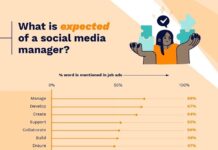The New Hampshire Republican Presidential Debate on Monday night sparked reactions from many viewers on Facebook and Twitter. These likes and comments provide realtime data for firms – one example being the startup Likester – to process the reaction to each candidate and deliver early indicators of performance, as reported by Adweek. According to analytics site Trendistic, “1.5 percent of all tweets worldwide included the CNN hashtag at one point during the debate.”
Likester measured candidate popularity by monitoring their official Facebook pages for a spike in Likes during the debate. Some highlights from this analysis (see the full data for each candidate on Mashable):
- Mitt Romney continued as the clear frontrunner, with 955,748 total likes on Facebook, and 19,658 new likes from the debate
- Michelle Bachmann had a strong showing in second place, with 326,255 total likes, and 9,232 new likes (half the amount of Mitt Romney’s new likes)
- While Ron Paul still has more overall likes (390,945) than Bachmann, he had less new likes (8,717), showing a weaker peformance in the debate
- the rest of the candidates trailed fairly far behind in terms of both total likes and new likes from the debate
Likester’s analysis of Facebook likes was only one example of viewers’ reactions via social media. CNN’s hashtag for the debate, #CNNDebate, was a “huge success” on Twitter, with users expanding the debate by voicing opinions and candidate preferences, as well as asking additional questions. CNN also incorporated posts from its own site, Twitter, and Facebook into the debate itself, as reported by Adweek.
How big a role will realtime platforms like Twitter play as discussion forums in the upcoming election? Could social and realtime analysis become the polls of the future?


